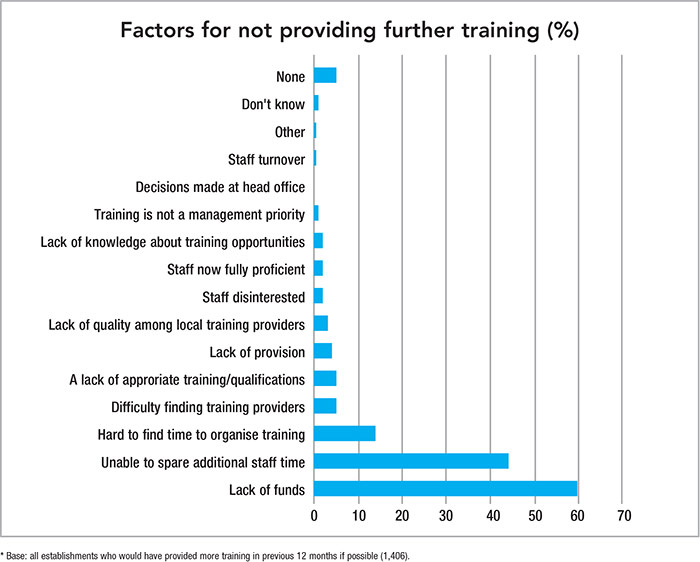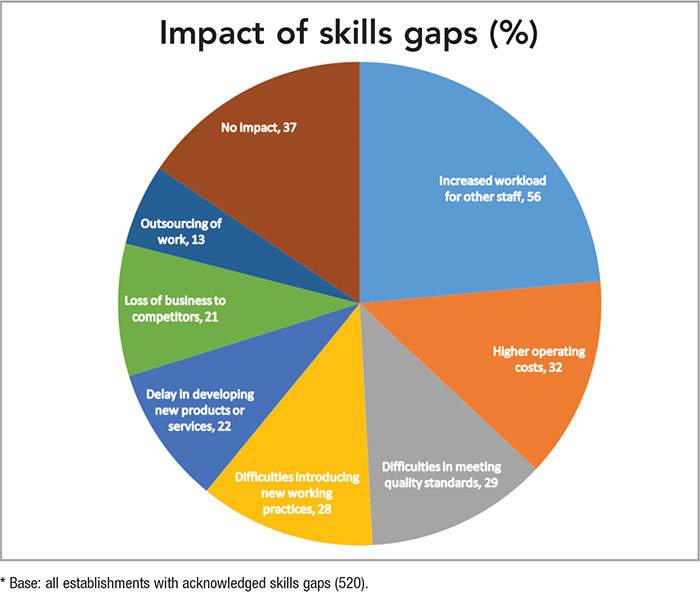Surveying the skills scene


The results of the most recent UK Commission for Employment and Skills (UKCES) Employer Skills Survey indicate a growing complexity of job roles across the workforce. agendaNi explores.
Skills have a significant bearing on the existential future of a business. Most notably they have implications for productivity and the potential for growth.
A sample size of 4,019 employers across Northern Ireland, an almost identical scale to its 2013 predecessor, indicated a substantial rise in vacancy levels (up 25 per cent between the surveys in 2013 and 2015). Simultaneously, while a high demand for labour is prevalent, the number of skills gaps, of an employee deemed by their employer to be not fully proficient in their role, has decreased to 3.3 per cent of the workforce.

The most lacking attributes among existing staff were both a knowledge pertaining to the organisation and its services and the specialist skills required for the role. At the same time, the survey recorded a demand for improved personal skills and highlighted a common theme of inadequate time management. Across all occupations it is becoming increasingly evident that, as individuals absorb a wider range of responsibilities within their existing roles, these assume an advanced level of complexity.

Skills shortages can damage business in that certain members of staff are lumbered with increased workloads and additional pressures. This is acknowledged by 83 per cent and 56 per cent of employers, respectively. While innovation is crucial to enhancing productivity, the inability of under skilled staff to solve complex problems exposes limitations.
Contemporaneously, some 56,000 members of the workforce were considered to be over-qualified and over-skilled in their existing employment. 24 per cent of employers asserted that this was because the employees in question were ‘not interested in taking on a higher-level role’. As such, enhanced incentivisation could enable employers to capitalise on this existing and untapped talent pool.
Training and upskilling of existing staff is crucial in efforts to mitigate for such impediments to growth. Despite an improved economic environment, the prevalence of training levels remained comparatively static between 2013 and 2015. Employers have a fundamental role in the provision of such training. While almost half of the 2015 sample (47 per cent) indicated a current commitment to training or expressed an intention to offer more opportunities, 60 per cent identified a lack of funds as inhibiting efforts to provide further training.






